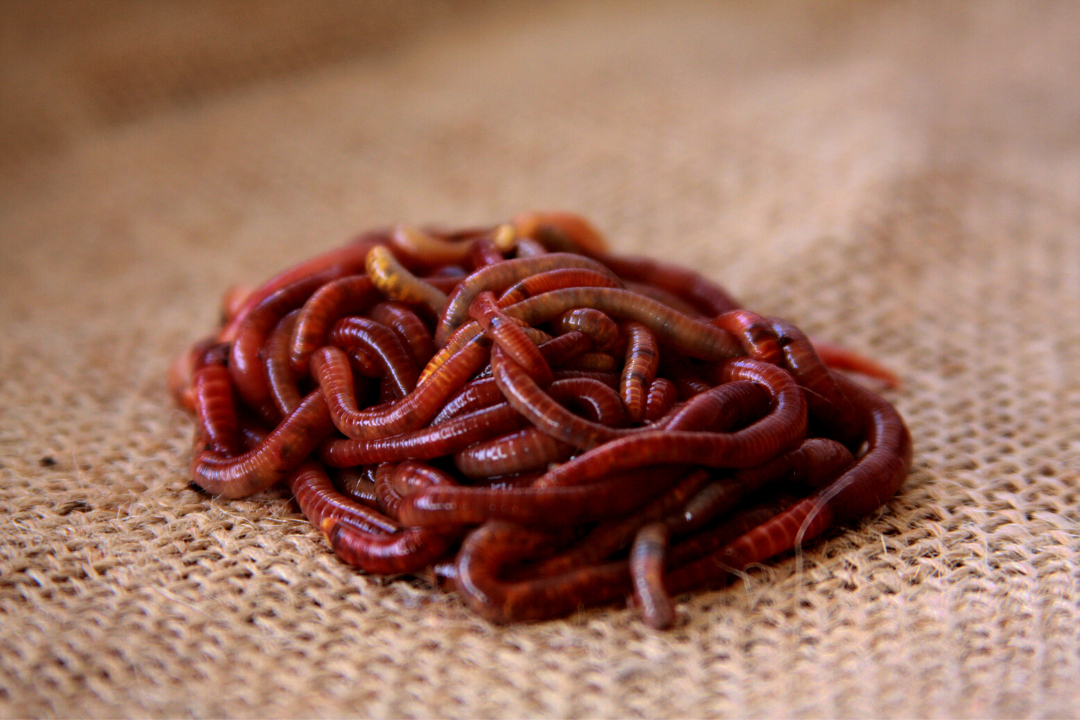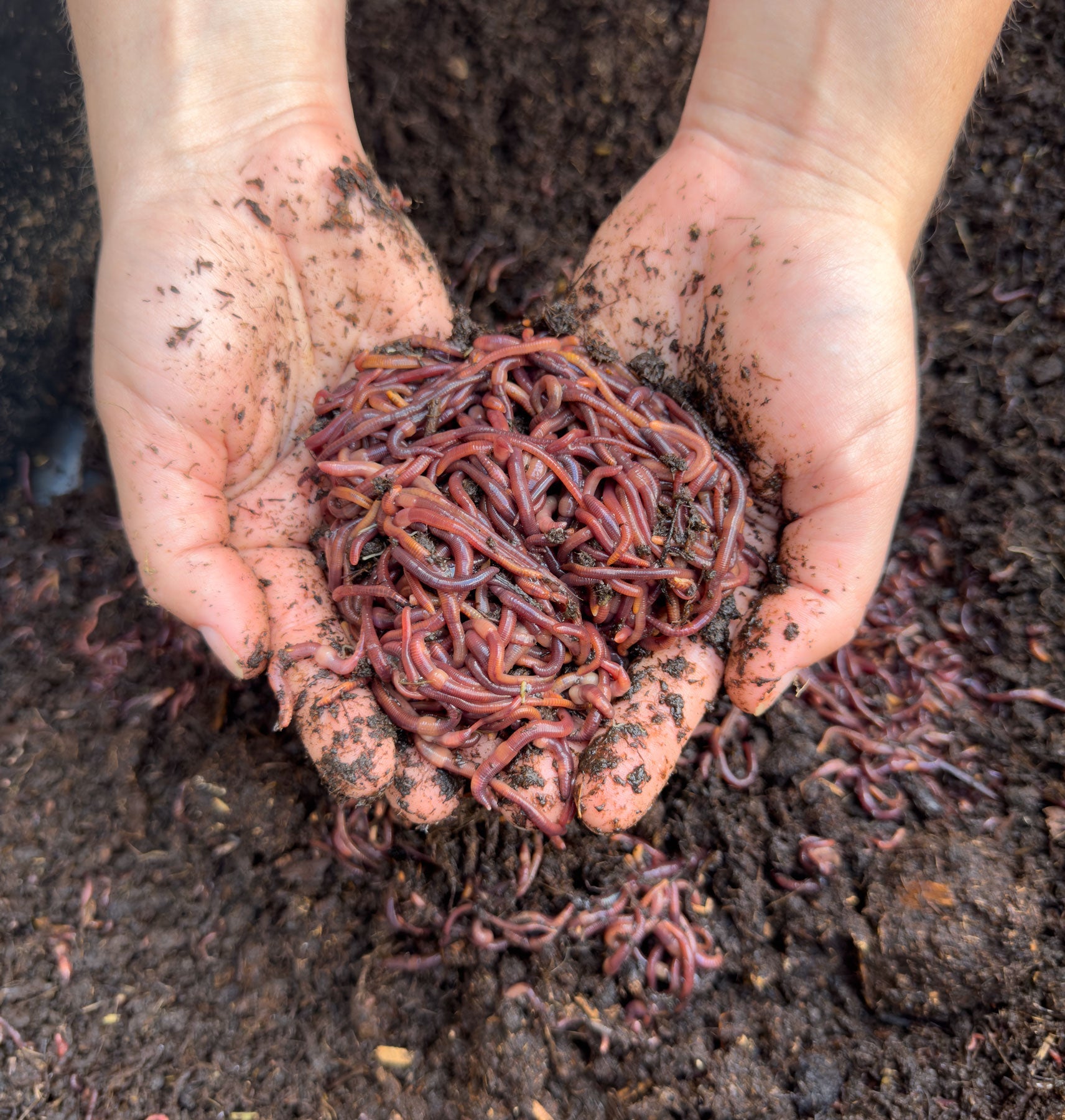The Unbelievable World of Red Wigglers: Boost Your Dirt Fertility Today
These tiny yet efficient microorganisms change organic waste into useful worm spreadings, significantly improving soil health and promoting lasting methods. As we check out the advantages of vermicomposting and the functional steps to produce an effective worm bin, the possible impact of these worms on your horticulture success becomes progressively noticeable.
Recognizing Red Wigglers
Red wigglers, medically called Eisenia fetida, are a varieties of earthworm that play an essential function in enhancing dirt fertility. These worms prosper in organic-rich settings, such as compost stacks and rotting plant material, where they eat organic waste and eliminate nutrient-dense spreadings. Their unique composition, featuring a fractional body and a clitellum, enables them to replicate swiftly and efficiently process large quantities of organic matter.

The environmental importance of red wigglers expands past simple waste processing; they add to the dirt food web, fostering a varied community of microbes that even more enhance dirt health. Comprehending the biology and habits of red wigglers is important for harnessing their complete potential in lasting agriculture and horticulture methods.
Advantages of Vermicomposting
(Red Wiggler Express)Taking advantage of the power of red wigglers through vermicomposting deals various benefits that considerably improve soil health and fertility. Among the main benefits is the production of nutrient-rich worm castings, which are an outstanding all-natural fertilizer. Red Wiggler Express. These castings contain important nutrients like nitrogen, phosphorus, and potassium, advertising robust plant growth and enhancing crop yields
Furthermore, vermicomposting enhances dirt framework and aeration. The visibility of worm spreadings improves soil texture, permitting much better water retention and water drainage. This well balanced moisture degree is essential for origin development and the total health of plants. Red wigglers assist damage down natural issue, increasing decay and recycling nutrients back into the soil.
Vermicomposting likewise promotes microbial task, which is crucial for a healthy and balanced dirt ecosystem. Beneficial bacteria thrive in the existence of worm castings, assisting in the malfunction of organic products and enhancing nutrition schedule to plants.
Lastly, vermicomposting works as an efficient waste administration remedy, lowering landfill waste by reusing kitchen area scraps and various other organic products. This not just adds to environmental sustainability yet likewise advertises a circular economic climate within gardening and farming.
How to Set Up a Worm Bin
Establishing a worm bin is a simple process that can dramatically boost your composting efforts. Begin by picking a proper container, which can range from a readily available worm container to a straightforward plastic or wooden box (Red Wiggler Express). Guarantee the container has sufficient ventilation; little holes in the cover and sides will certainly facilitate air blood circulation
Following, develop a bed linen layer to give a comfy environment for the red wigglers. This can be made from shredded newspaper, cardboard, or coconut coir, dampened to a wet, sponge-like consistency. Load the bin to around one-third full with this bed linen material.
As soon as the bedding is prepared, it's time to present the worms. Red wigglers prosper in natural waste, so place them delicately onto the bed linen. Cover the worms with a light layer of extra bedding to aid them adapt.
Feeding Your Red Wigglers
Offering the appropriate food for your red wigglers is vital for their wellness and the effectiveness of your composting system. Red wigglers flourish on a diverse diet, mainly being composed of organic materials such as fruit and veggie scraps, coffee grounds, and shredded paper. These materials not only supply essential nutrients but additionally contribute to the microbial activity in the worm bin, which is vital for the worms' food digestion.
It is necessary to avoid certain foods, such as milk items, oils, and meats, as these can draw in bugs and produce unpleasant odors. Additionally, citrus peels and excessively hot foods ought to be restricted as a result of their prospective to damage the worms. A well balanced method to feeding entails keeping track of the quantity of food presented to the bin, ensuring that it is eaten within a reasonable time framework to protect against excess waste build-up.
To advertise optimum digestion, it is beneficial to cut or shred larger food items prior to adding them to the bin. This practice boosts the surface area for microbial action, assisting in quicker disintegration and enhancing the general efficiency of your composting system. Frequently observing the worms' feeding habits will certainly aid you adjust their diet as necessary.
Utilizing Worm Castings in Your Yard

(Red Wiggler Express)Including worm castings into your garden can be completed by blending them into the dirt or using them as a top dressing. The slow-release nature of these castings ensures that nutrients are offered to plants over an extensive period, reducing the requirement for synthetic plant foods. In addition, worm spreadings consist of valuable microorganisms that advertise healthy and balanced soil ecological communities, boosting the total strength of your yard.
To make the most of the advantages, aim to use roughly one part worm spreadings to 3 components dirt in your growing beds. Routine applications can cause improved plant returns and healthier plants, making worm spreadings a Red Wiggler Express vital source for both amateur and skilled gardeners alike. By utilizing this natural amendment, you can cultivate a flourishing garden while contributing to lasting horticulture methods.
Final Thought
In verdict, red wigglers exhibit the crucial function of vermicomposting in enhancing dirt fertility. Their capability to convert organic waste into nutrient-rich castings significantly improves dirt framework and sustains microbial variety. Developing a vermicomposting system not only promotes lasting horticulture practices but additionally contributes to eco-friendly health and wellness. By leveraging the benefits of these remarkable microorganisms, gardeners can cultivate a lot more productive and resistant communities, ultimately promoting an extra sustainable approach to farming and gardening.
 Melissa Joan Hart Then & Now!
Melissa Joan Hart Then & Now! Michael C. Maronna Then & Now!
Michael C. Maronna Then & Now! Seth Green Then & Now!
Seth Green Then & Now! Daryl Hannah Then & Now!
Daryl Hannah Then & Now! Naomi Grossman Then & Now!
Naomi Grossman Then & Now!